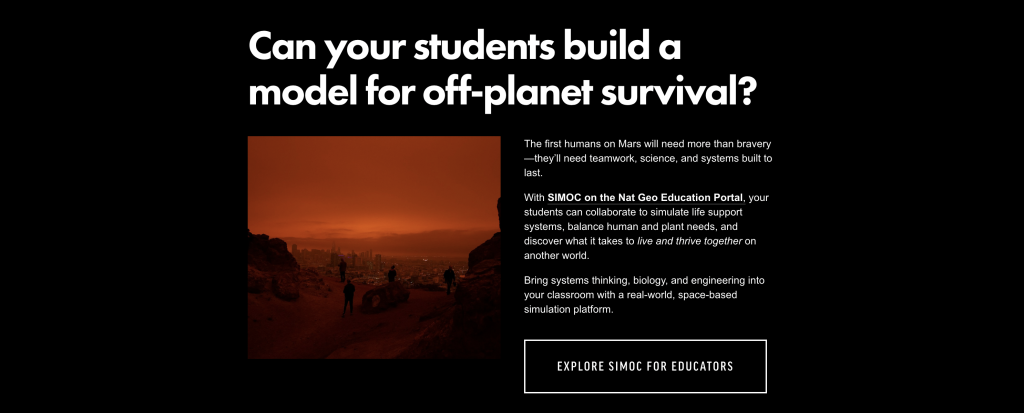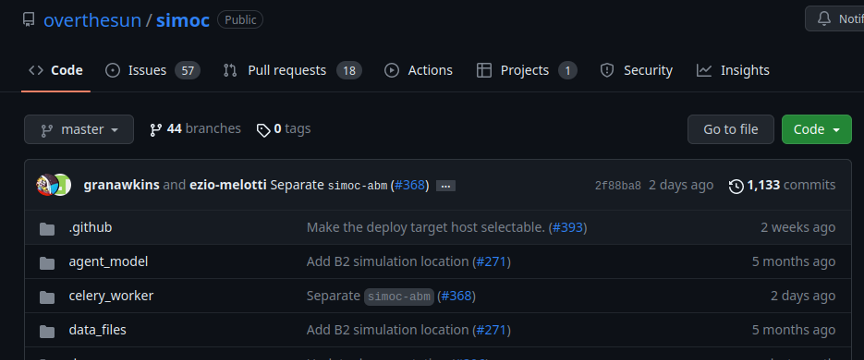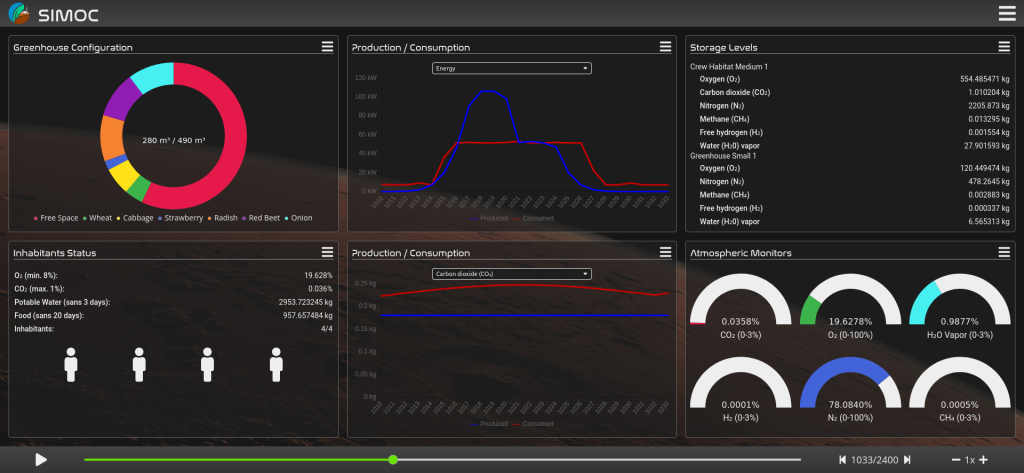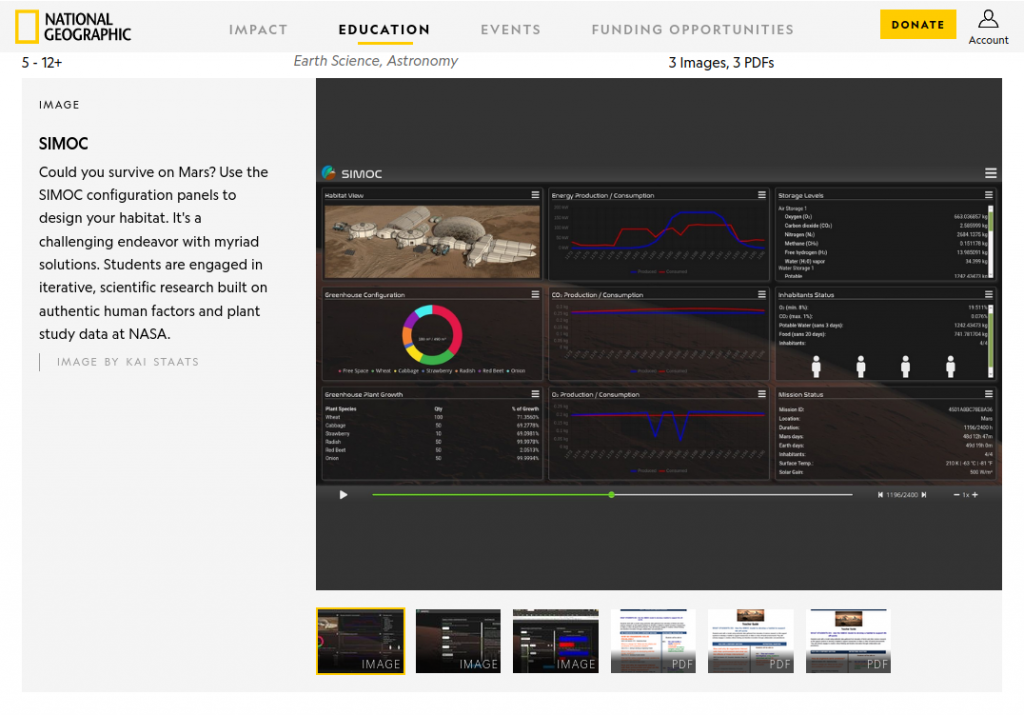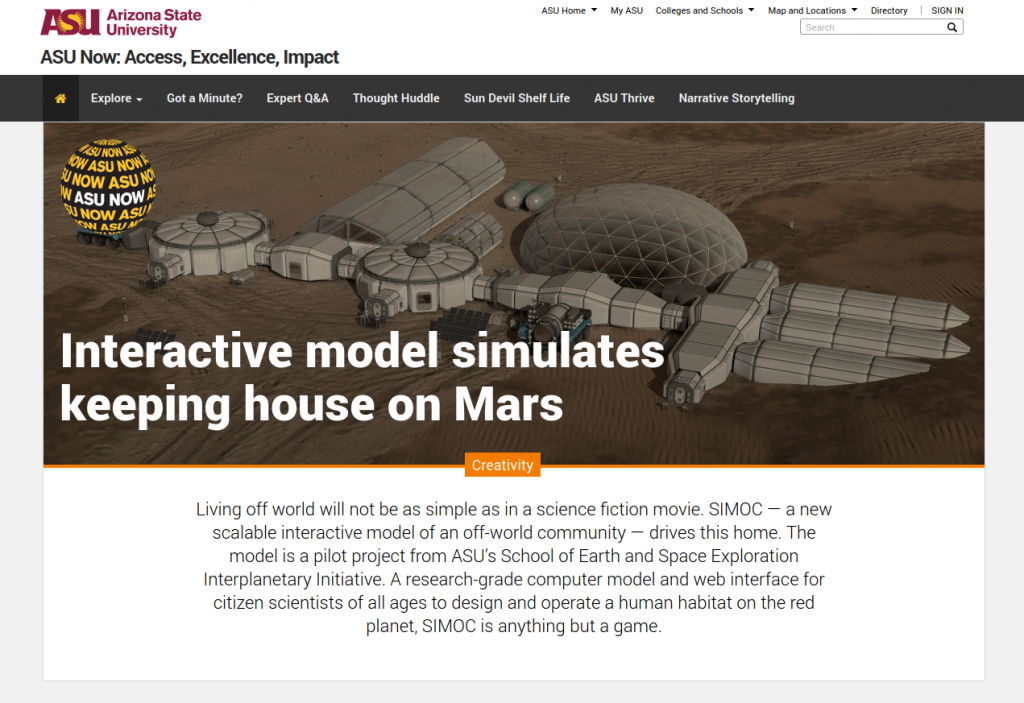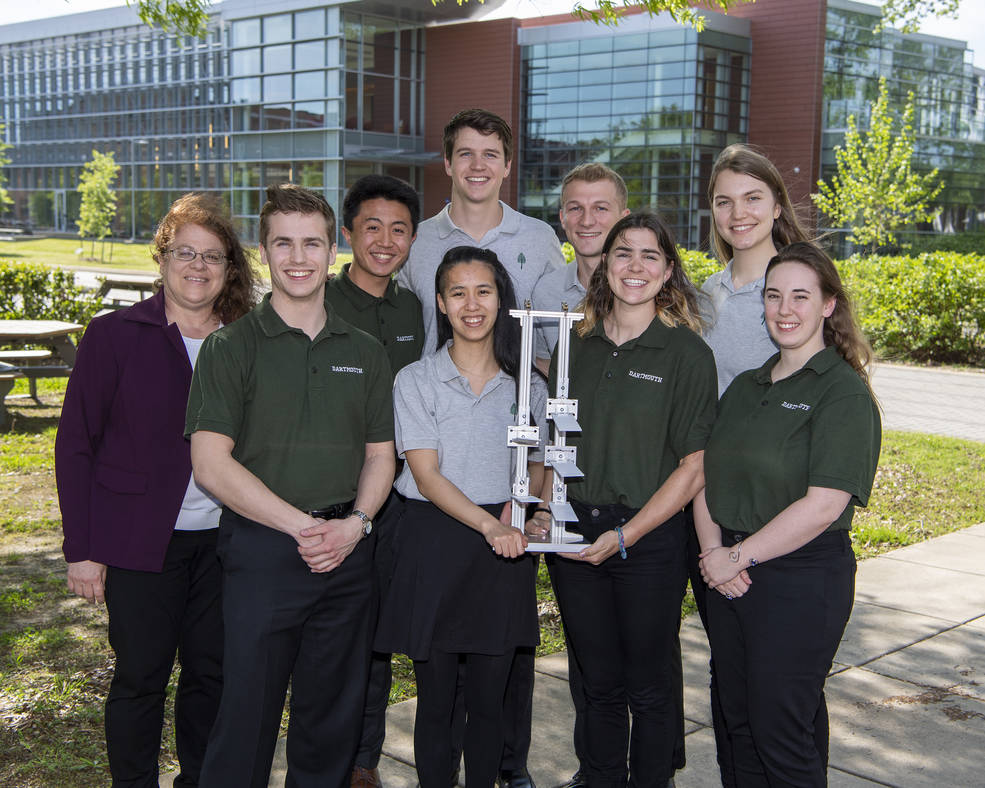ASU’s Interplanetary Initiative features SIMOC
Arizona State University’s Interplanetary Initiative, the same that supported the launch of SIMOC in 2017-18, is featuring SIMOC is a new interactive, educational “BIG IDEAS” question “How will the first humans on Mars work together to survive?”
Enjoy the three featured segments, “How can we sustain healthy communities on Mars?”, “Why we can’t stop dreaming about the Red Planet”, and “Can your students build a model for off-planet survival?”


